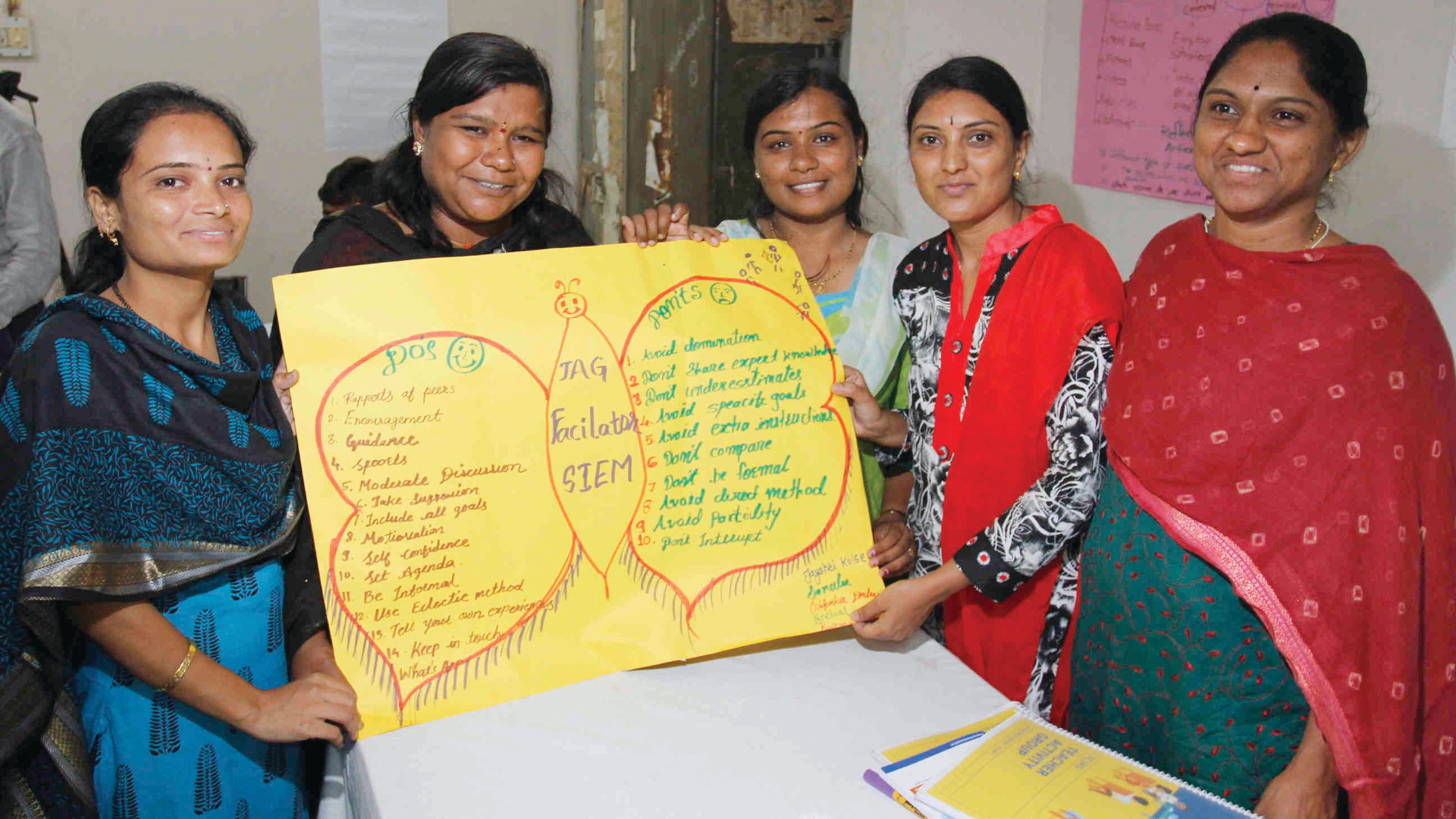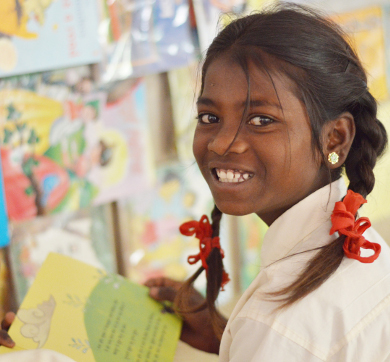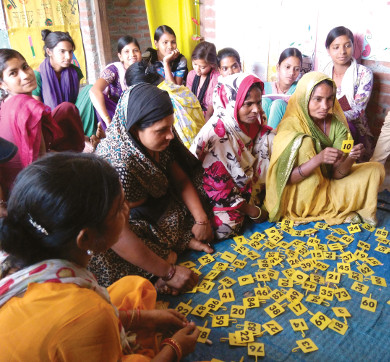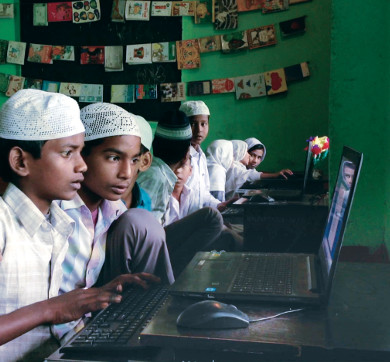December 2019 | 422 words | 2-minute read
Nothing about Priyanka Dalvi appears to be out of the ordinary as she greets visitors at a small school in Phulambri town, about 100km from Maharashtra’s historical city of Aurangabad. But Ms Dalvi, a government school teacher, is exceptional — and the reason is the fluency she has acquired over recent years in the English language.
Ms Dalvi, who had a working knowledge of English, was not comfortable speaking the language or understanding it with ease. That changed after she joined a programme aimed at enabling schoolteachers in rural Maharashtra to become facile in the language.
Called Tejas (meaning brilliance in Hindi), this collaborative initiative involving the state government, the British Council and the Tata Trusts started in 2016. It is changing the way English is taught and learned in Maharashtra’s hinterland. Now nearing the end of the pilot-project phase, Tejas has reached some 18,000 teachers thus far.
Getting their kids to be fluent in or at least know English is a commonplace aspiration for parents even in India’s rural regions, where the primary mode of communication in state-run schools is the local language. The intent behind Tejas has been to change that equation.
The programme’s key objective, rolled out in 9 districts of Maharashtra, is to bring about a systemic transformation in the quality of teaching English. “I learned English in school but most of the learning came through writing, not conversing. The Tejas programme is changing that for me.” says Srikant Patil, a schoolteacher, adding, “These sessions have increased my confidence and improved my English.”
Under Tejas, participants engage in word games, have discussions in English and observe ‘English day’ once a week (where teachers and students follow an only-English rule in class); besides guest lectures and clubs to promote the language.
Enthused by the success of Tejas, the Maharashtra government proposes to revitalise the State Institute of English at Aurangabad so that it is equipped to support English training initiatives.
Individual stories emerging from the Tejas classroom provide further encouragement. One of the beneficiary schoolteachers — hailing from Gadchiroli — has been nominated by the British Council to attend an international conference in English.
In Maharashtra itself, the programme is poised to cover all 36 districts of the state. The goal is to train 48,000 teachers in about 5 years and, eventually, scale the number up to 100,000 teachers.
Tejas is now sparking interest in other Indian states and abroad too. Gujarat and Madhya Pradesh are set to unveil a similar programme, which has also found takers in Romania, Nepal and Egypt.



